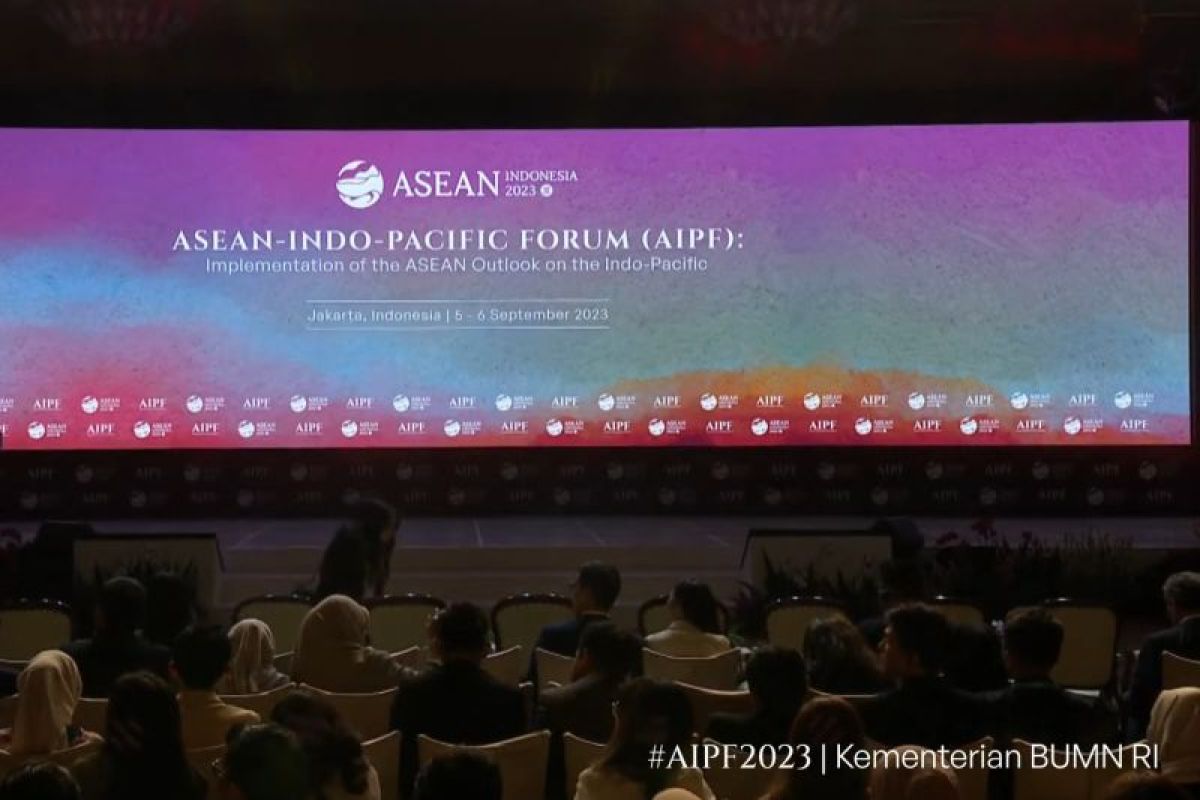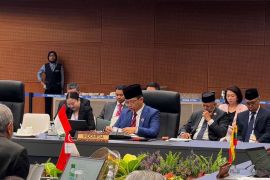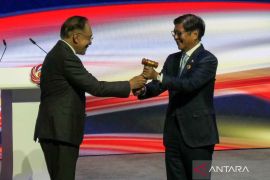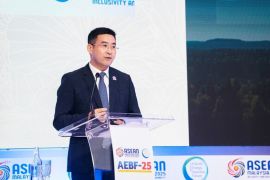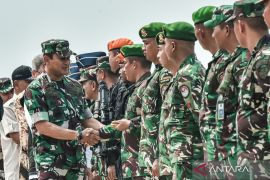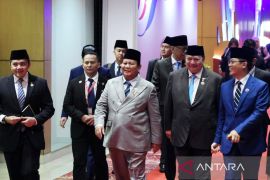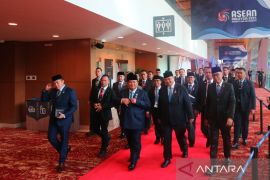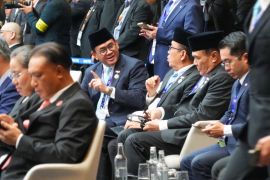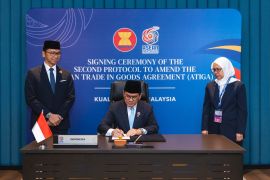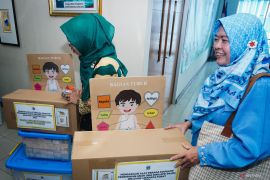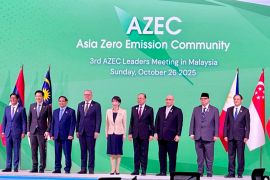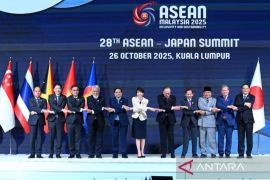On Wednesday, several speakers in the AIPF panel discussion, themed "Sustainable and Innovative Financing," at the Mulia Hotel, Jakarta, voiced their opinions regarding the promotion of green financing that supports the reduction of gas emissions.
Risk Management Director of PT SMI, Pradana Murti, stated that his company received two mandates from the Indonesian government, with the first being, as an innovative financier of national development in the public sector serving 548 regional governments, while secondly, as a private sector provider, with the role of managing the energy transition mechanism.
“That is basically we are acting as the local and domestic intermediary sitting between the assets and the financing,” Murti remarked.
According to Murti, his company applies the principle of sustainability in providing this financing.
He cited the example that PT SMI in 2018 became the first company to issue a local corporate green bond that met the Asian bond standards.
Moreover, PT SMI achieved the highest level of green office certification, the Platinum award, by the Green Building Council Indonesia (GBCI) and Sucofindo as proof that the company consistently applies sustainable principles in projects and operational aspects.
Meanwhile, Vice President Director of Bank Mandiri, Alexandra Askandar, said that his side realized that there is great enthusiasm from various industrial sectors to participate in renewable energy and environmentally friendly transportation.
She said banks could play an important role in carbon swap programs.
“We see that our role can also be positive in this carbon exchange. Why? Because we can connect. We can be the intermediary to connect between this seller and purchaser of the buyer of this carbon credit,” Askandar stated.
Askandar noted that the positive outcome in the efforts to reduce emissions is the government's supportive policies, such as providing incentives and relief for local components for environmentally friendly vehicles.
With the right carbon assessment mechanism, she said, it could be the main support for creating environmentally friendly financing, so that several parties would propose environmentally friendly investments.
“I believe this incentive and the policies are what we need,” Askandar stated.
Additionally, the CEO of the Indonesia Investment Authority (INA), Ridha D.M. Wirakusumah, explained that his company is developing Indonesia by encouraging investment to grow and be sustainable.
INA is paying attention to several investments that will benefit Indonesia, with four types of industries, namely infrastructure, health services, digital technology, and energy transition.
“Energy transition, which is kind of unique, because we found that focusing on energy transition and renewables can also make good business sense,” Wirakusumah remarked.
In terms of clean energy, the company has invested in Asia's largest geothermal company.
According to Wirakusumah, the potential of clean energy investment in Indonesia is huge, considering the need for a transition from coal-sourced electricity to renewable energy and the electric vehicle industry.
“So that is something that I think I am looking forward to working with the neighboring ASEAN countries to develop the EV,” he remarked.
Moreover, Coordinating Minister for Maritime Affairs and Investment, Luhut Binsar Pandjaitan, emphasized that the ASEAN is ready to collaborate with all partners in the Indo-Pacific region with the principle of equality.
"ASEAN is ready to work together collaboratively with all partners, especially in the Indo-Pacific, based on the principle of equality," Pandjaitan remarked at the closing of the AIPF 2023.
He believes that developing countries are not second-class nations. Developing countries also have the right to survive.
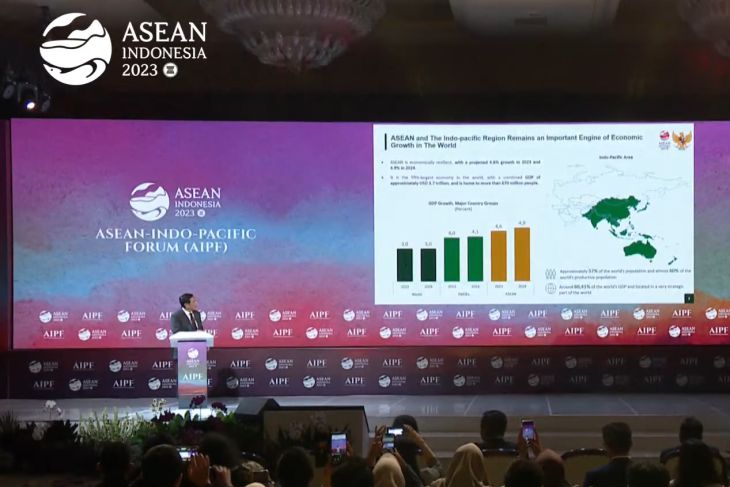
Pandjaitan highlighted that the important task of regional cooperation is maintaining sovereignty and mutual relations to maintain peace and stability while achieving a profitable economy and social justice.
In line with Pandjaitan's view, Vice Minister of Foreign Affairs of the Republic of Indonesia Pahala Nugraha Mansury stated that the AIPF implements the Association of Southeast Asian Nations (ASEAN) view to stem rivalry into regional cooperation.
"ASEAN is part of the Indo-Pacific region. And what we want to build is how, through AIPF, we can be present to stem the rivalries that exist in the Indo-Pacific into cooperation," Mansury noted.
It is hoped that this forum can build mutually beneficial and inclusive cooperation, where all countries in the region are involved in cooperation.
Of course, it is hoped that this forum can lay a stronger foundation for ASEAN to conduct economic development in the region.
The AIPF on September 5-6, 2023, raised the theme of "Implementation of the ASEAN Outlook on the Indo-Pacific."
Three topics were discussed at the AIPF: green infrastructure and resilient supply chains, digital transformation, and the creative economy, as well as sustainable and innovative financing.
Activities at the AIPF Business Matching 2023 on Wednesday were also attended by 185 investors, both international and domestic.
Business introductions covered several fields, including renewable energy, the development of clean hydrogen, clean ammonia, alumina refining, the battery value chain, and toll road infrastructure, to ports.
Meanwhile, the focus is laid on several sectors as national strategies, namely five projects in energy, oil and gas; nine projects related to toll roads; five port-related projects; six health-related projects; three fertilizer projects; 10 infrastructure projects; nine projects related to tourism; and three projects pertaining to the electric vehicle (EV) ecosystem and value chain.
On the sidelines of the AIPF, a memorandum of understanding (MoU) was also signed between the Japan Desk and BNI and Shokochukin Bank and an MoU between BNI and Korea Exim Bank. Moreover, an MoU on the Sanur SEZ was inked between InJourney and several of its partners.
Related news: ASEAN ready to collaborate with Indo-Pacific partners: minister
Related news: Jokowi hopes Canada becomes anchor of peace, stability in Indo-Pacific
Editor: Azis Kurmala
Copyright © ANTARA 2023
